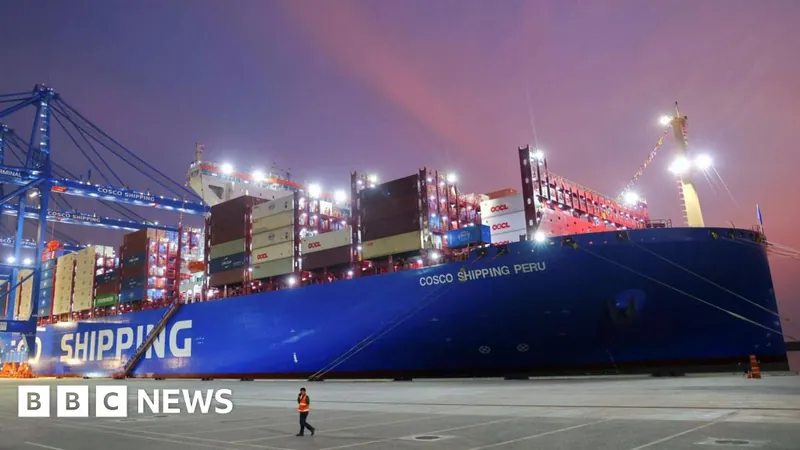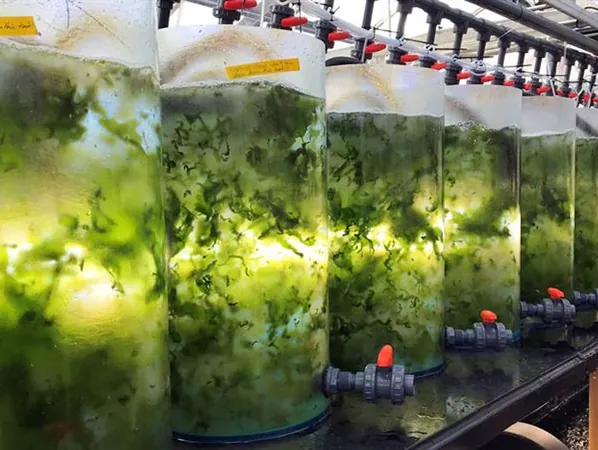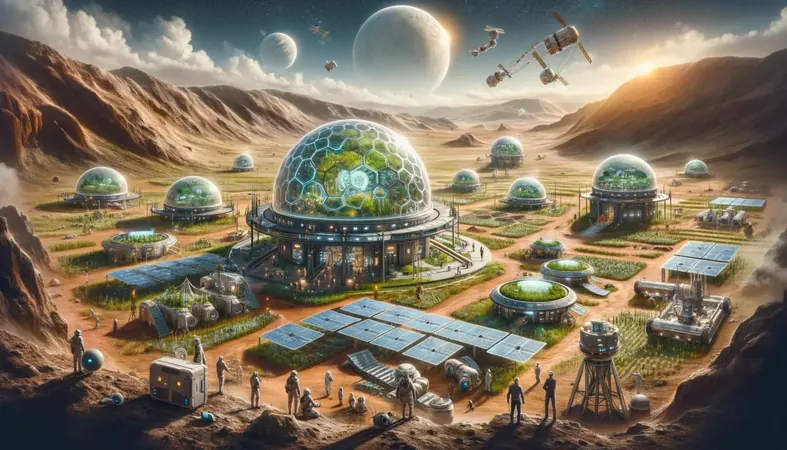
Alarming Study Reveals Plankton Could Face Extinction Due to Accelerating Global Warming
2024-11-13
Author: Emma
Groundbreaking Study from the University of Bristol
A groundbreaking study from the University of Bristol warns that many marine organisms, particularly plankton, may not survive the impending challenges of human-induced global warming over the next century. This research, recently published in the esteemed journal *Nature*, is the first of its kind to draw direct comparisons between plankton responses to ancient climate shifts and the rapid temperature increases anticipated by the century's end.
Dire Findings on Plankton Adaptation
The findings are dire: plankton are struggling to adapt to the astonishing rate of current climate change, which jeopardizes a vast array of marine species. These microscopic organisms form the foundation of the oceanic food chain, serving as a crucial food source for fish and other sea life.
Expert Insights from Dr. Rui Ying
According to Dr. Rui Ying, the lead author and a Ph.D. candidate specializing in marine ecology at the University of Bristol, the situation is deeply concerning. "Even under more cautious climate projections of a 2°C increase, it’s evident that plankton cannot keep pace with the accelerated warming we are witnessing today," he stated. Dr. Ying emphasized that the ripple effects of plankton decline would be catastrophic, jeopardizing marine ecosystems and human food security.
Innovative Model to Analyze Plankton Behaviors
To understand the future of plankton amid climate change, the researchers developed an innovative model that analyzed past behaviors of plankton from 21,000 years ago during the last Ice Age. This model enabled scientists to draw parallels to how these vital organisms might respond to future temperature rises. By concentrating on a specific group of plankton known to persist through different epochs, the study provides unprecedented insights into their ecological resilience.
Historic Adaptation vs. Modern Challenges
Historically, geological records show that plankton adapted to past warming by migrating to cooler waters. But Dr. Ying cautioned that under present climatic and ecological conditions, such adaptability may no longer be feasible. The rapid pace of modern climate change could potentially lead to the extinction of these vital organisms.
Call to Action Amid Global Meetings
The implications of this research come at a pivotal moment as global leaders convene to address climate issues. Under the Paris Agreement, nations committed to limiting the global temperature increase to well below 2°C above pre-industrial levels, ideally striving for just 1.5°C. However, a recent United Nations report sounded the alarm, predicting that without immediate and aggressive action to curb carbon emissions, the planet could warm by as much as 3.1°C.
Urgency Highlighted by Co-author Daniela Schmidt
Co-author Daniela Schmidt, a Professor of Earth Sciences at the University of Bristol and a veteran contributor to multiple Intergovernmental Panel on Climate Change (IPCC) reports, called attention to the urgent need for action. "The findings of our research amplify the risks tied to the rapidly evolving climate and environmental shifts we are witnessing. The acceleration of these trends poses significant threats not only to ecosystems but also to livelihoods, particularly among fishing communities reliant on marine resources," she remarked.
Conclusion and Call to Unite
As the situation grows more dire, the call to action is clear: nations must unite and enhance their efforts to minimize global warming. The implications of failing to protect plankton could resonate far beyond the oceans, affecting food security and the overall health of our planet.









 Brasil (PT)
Brasil (PT)
 Canada (EN)
Canada (EN)
 Chile (ES)
Chile (ES)
 España (ES)
España (ES)
 France (FR)
France (FR)
 Hong Kong (EN)
Hong Kong (EN)
 Italia (IT)
Italia (IT)
 日本 (JA)
日本 (JA)
 Magyarország (HU)
Magyarország (HU)
 Norge (NO)
Norge (NO)
 Polska (PL)
Polska (PL)
 Schweiz (DE)
Schweiz (DE)
 Singapore (EN)
Singapore (EN)
 Sverige (SV)
Sverige (SV)
 Suomi (FI)
Suomi (FI)
 Türkiye (TR)
Türkiye (TR)